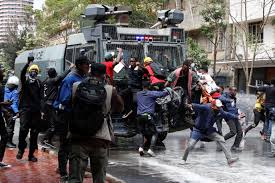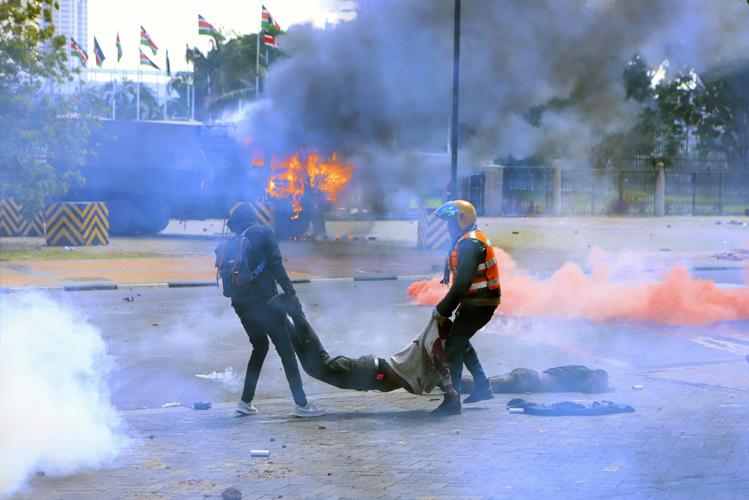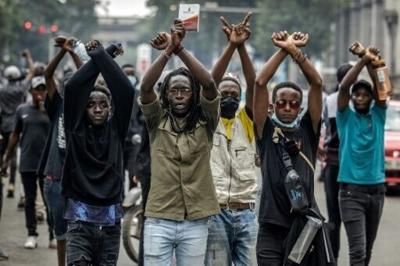Violent clashes erupted in Kenya’s capital Nairobi on Tuesday as police opened fire on demonstrators attempting to storm the parliament building. The unrest, which left at least five protesters dead and dozens wounded, coincided with lawmakers passing controversial legislation to raise taxes amid a worsening cost-of-living crisis.

The chaotic scenes unfolded as protesters overwhelmed police forces and briefly chased them away from the parliament compound. Parts of the building were set ablaze, with flames visible from inside. Police resorted to live ammunition after tear gas and water cannons failed to disperse the crowds.

A Reuters journalist at the scene counted at least five bodies outside parliament, while paramedics reported treating over 50 people for gunshot wounds. The violence was not confined to Nairobi, with protests and clashes also occurring in several other cities and towns across Kenya.
Despite the turmoil outside, parliament approved the finance bill, moving it through to a third reading. The legislation now awaits President William Ruto’s signature, though he retains the power to return it to parliament with objections.
The protests stem from widespread opposition to tax increases in a country already grappling with severe economic challenges. Many demonstrators are also calling for President Ruto’s resignation, accusing him of failing to deliver on his campaign promises to champion Kenya’s working poor.

Ruto, who won the election nearly two years ago, finds himself caught between the demands of international lenders like the IMF, urging deficit reduction, and a population struggling with multiple economic shocks. These include the lingering impacts of the COVID-19 pandemic, the Ukraine war, consecutive years of drought, and currency depreciation.
The controversial finance bill aims to raise an additional $2.7 billion in taxes to address Kenya’s heavy debt load. Despite government concessions, including the scrapping of proposed new taxes on essential items like bread and cooking oil, protesters remain unsatisfied.

The demonstrations, which began peacefully, quickly escalated as crowds swelled. Police used tear gas in Nairobi’s Central Business District and the impoverished neighborhood of Kibera. Similar scenes unfolded in other major cities, including Eldoret, Mombasa, Kisumu, and Garissa.
Protesters chanted slogans like “Ruto must go” and sang in Swahili: “All can be possible without Ruto.” The movement, largely youth-led and organized online, has gained significant momentum in recent weeks.
The opposition declined to participate in the parliamentary vote, shouting “reject, reject” as the house went through the bill items. The finance ministry warns that amendments to the bill would create a significant budget shortfall, potentially leading to spending cuts or tax increases elsewhere.

As Kenya grapples with this escalating crisis, the international community watches closely. The violent turn of events raises concerns about political stability and economic recovery in one of East Africa’s largest economies.
The coming days will be crucial in determining whether the government can find a way to address the protesters’ concerns while maintaining fiscal responsibility. With tensions running high and the economic situation remaining precarious, Kenya faces a challenging path forward in balancing the needs of its citizens with the demands of economic reform.



